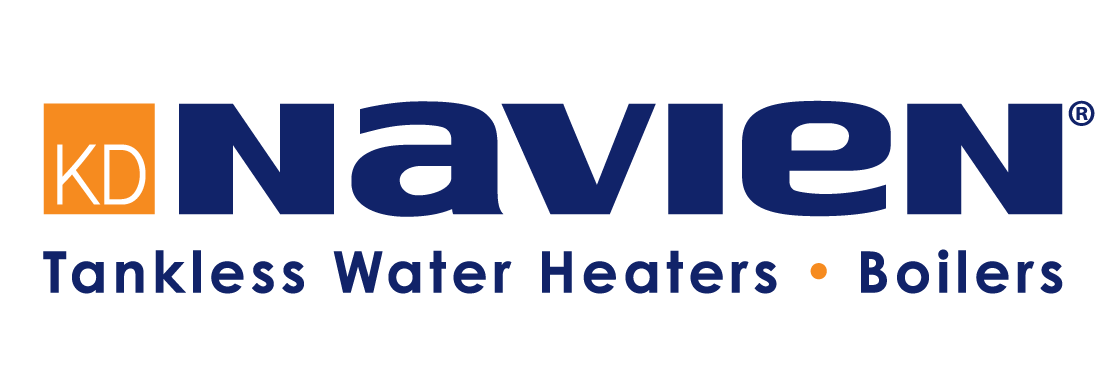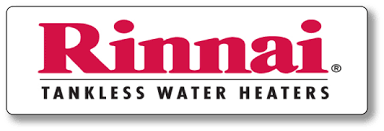Tankless water heaters are one of the best investments you can make in your home’s plumbing system. They provide unlimited hot water, bẹtter savings, and are easy to operate and maintain. The industry of tankless water heaters is highly competitive, and Rinnai and Navien are two of their top brands. Is there any difference between Navien and Rinnai?
Both Rinnai and Navien are two popular tankless water heater brands. They are known for quality, warranty, and durability, and you’ll be better off with either company’s water heater. However, Rinnai is better for those who want a gas water heater, while Navien is better for those who prefer electric.
Rinnai has more gas and propane options than Navien brands. However, there are more things to consider before choosing the better brand according to your needs that you will find in this article.
About Navien
With Navien’s rich history in water heating, they hold the stylish water heater brand title. Since then, they have only expanded the markets to Oceania, South America, Russia, Europe, and North America.
Their selection of water heaters only includes tankless units because they’re further energy effective. Each year, Navien improves its tankless water heaters to provide homeowners with the most efficient units at a great price. They introduce a series of units to accommodate the needs of every homeowner.
The Navien product line includes condensing and non-condensing models. Non-condensing water heaters remove exhaust feasts from home incontinently, while condensing units use the exhaust in the heating process. Remember, non-condensing units have less loss, and condensing units are more efficient.
For instance, Navien NPE- 240A2 comes with a pristine sword heat exchanger. With a storage of 199,000 BTU per hour, this model delivers 11.2 gallons per minute of flow and includes several safety devices such as flame rod, burner high limit fuse, power surge fuse, water temperature high limit switch, and vent installation detector.
Navien warranty of 15 years for the heat exchanger, five years for parts, and one year. The unit was priced at $1,999 at some online stores but is available at other supply houses for around $1,600.
The only real problem with the Navien is that the heat exchanger’s flame sensors must be fixed. Moreover, the NPE-240 A 2 is by no means poorly built. The water tapping moves when threading the isolation valve, but that’s the only concern. One thing is certain that the stainless steel heat exchanger increases the unit’s durability against hard water.
The only grouch with the NPE- 240A2 is that the condensate drain is behind the gas inlet. This reduces the space you must work with, especially if you put an acid neutralizer into your system.
About Rinnai
Rinnai water heaters are one of the more popular brands. The company started in 1920 in Japan. They began selling in America in the 1970s when they opened an office in Los Angeles, California. Rannai is one of the best water heater brand due to its international reach and affordable options.
Rinnai manufactures tankless water heaters with high effectiveness conditions. They make hybrid water heaters that use a storehouse tank and heat pump to retain hot water. Companies prioritize affordability in their mission statement. Rinnei believes that every home deserves an efficient product, so they make their water heaters budget-friendly.
For instance, Uniform Energy Factor (EF) of .93 for a maximum of 199,000 BTUs per hour, The RUR199iN “promises to last twice the lifespan of most tanks. It comes with a 15-year warranty on its stainless steel heat exchanger, a 5-year warranty on other parts, and a 1-year labor warranty. Safety devices are included such as flame rod, auto frost protection, boiling protection, and Glass fuse.
Providing a flow of 11 gallons per minute, the RUR199iN can serve a home with three to six fixtures simultaneously. It weighs 73 pounds and is about 2’7″ tall. RUR199iN is listed at $2,178.75 in 2021.
In terms of performance, Rinnai is on par with Navien. Both models will create the “cold water sandwich” many customers complain about occasionally. This is a crucial detail to remember.
The water heater only runs when you turn on the hot side of a fixture. The water heater’s sensors will register the water flowing from its hot outlet and start the combustion process. If you leave the fixtures on, you’ll get the “endless hot water” these systems are famous for delivering.
The water tapping at the system’s bottom will not wobble when cranking the brass fittings. A small detail attests to the Japanese brand’s quality manufacturing and engineering. The manufacturer has earned 4.4 out of 5 stars for fulfilling customer needs.
The condensate drain is to the left of the cold inlet, hot outlet, and gas connections. It’s a minor design feature that makes installation much smoother.
Another nice feature is that the temperature and pressure (TAB) relief valve has its port. Many tankless models have T+P on a female adapter on the hot inlet isolation valve. Rinnai’s method makes service safer. in fact, you don’t have to worry about removing the hot inlet tapping.
5 Key Differences between Navien and Rinnai Water Heater
So far, it is difficult to say which of the two tankless water heater models will be the best choice for your family. After our list of key differences between Rinnai and Navien, deciding which investment is better for you will be much easier.
1. Ranges of Products
Additionally, Rinnai offers multiple water heater sizes and storage options, allowing for more customization to fit your family’s needs. Navien tends to have a smaller selection than that.
You will find that Rinnai offers more remote options for controlling and monitoring your water heater, such as with their mobile phone and wireless controllers. Navien offers smartphone control, but it is not widely available.
2. Heating Capacity
One of the main differences between these two water heaters is the overall heating capacity. A heating capacity is how much water the unit can heat. Rinnai water heaters have a maximum capacity of 400000 BTU, while Navien units can reach 199000 BTU.
This means that Rinnai will be a good choice for larger families or commercial spaces that require a lot of hot water. However, Navien’s lower heating capacity can be more energy efficient and cost-effective for smaller households.
3. Energy Efficiency and Condensing Technology
Another vital difference between these water heaters is their energy effectiveness. Rannai is known for its high efficiency, with some models reaching up to a .96 energy factor. On the other hand, an average efficiency of 0.90 energy factor.
Energy efficiency is an efficient factor in tankless water heaters, as they use a steady gas or electricity supply to heat water on demand. The higher the efficiency. The lower your energy bills in the long run.
Another critical difference is the technology used in each brand unit. Rinnai uses condensing technology, while Navien uses NPN condensing technology. Considering technology is more efficient and can save energy costs, it tends to be more expensive.
4. Flow Rate Capacity
Another critical difference is the flow rate between Rinnai and Navien. It helps to determine how much hot water can be produced at once.
Rinnai’s flow rates between 4.4 to 9.8 gallons per minute, while Naveen’s has 5.3 to 9.8 gallons per minute. Similarly, the maximum temperature rise varies between the two brands, with Rinnai ranging from 19-80 degrees and Navien from 20-83 degrees.
Overall, Rinnai and Navien are estimable tankless water heater assiduity brands with similar features and capabilities.
However, it ultimately comes down to personal preference and specific needs when deciding which brand is right for you. Are specific energy efficiency certifications more important to you?
5. Warranty
Navien shows more extended warranty on its water heaters than Rinnai. Navien provides 12 years of coverage on their heat exchangers and five years on parts, while Rinnai has five and 1-year coverage, respectively.
This can save homeowners more money in the long run if they experience any issues with their water heater.
Overall, Rinnai and Navien offer high-quality tankless water heaters with durable construction and efficient technology. Still, the Navien is a better option for those looking for additional extended warranty content and lower operating costs.
6. Costing
In terms of price, Navien tends to be the more affordable pioneer. However, long-term cost savings from Rinnai’s superior efficiency may outweigh this initial cost difference.
Moreover, Rinnai offers a wide range of tankless water heater options, including gas and propane models. Navien only offers gas models.
Regarding customer satisfaction, Rinnai has high ratings and low-reported product issues. However, Navien offers a more extended warranty period for its water heaters.
Ultimately, the decision between Rinnai and Navien will come down to personal needs and preferences. Comparing specs and considering the cost saving over time before making a purchase is essential.
Who is Most Reliable Between Navien and Rinnai?
Whether you are leaning towards a Navien vs Rinnai tankless water heater, You are bound to have an excellent appliance. Both brands have few wins over the other in select categories, but they are similar enough to declare a clear winner. Rinnai has advantages in terms of durability, heating capacity, customer support, and noise, whereas Navien wins in eco-friendliness, efficiency, warranty, and ease of installation.
The best way to choose between the two brands is to look at the benefits of each and decide which is more important to you. Navien has pretty decent options. That is why any family can adjust it as per their need. Modify what you need and choose the best one.
The best way to choose between the two brands is to look at the benefits of each and decide which is more important to you.
Conclusion
Choosing the right tankless water heater for you is not an easy task any more, especially when there are great brands like Navien and Rinnai. Their tankless water heaters are efficient, but Rinnai units are generally more reliable than Navien. A number of factors, such as efficiency and performance, determine a great water heater, so we follow along as we compare Rinnai and Navien.
Tankless water heaters are quickly becoming the most sought-after water heaters next to hybrid-electric units and can provide “endless hot water.”
In terms of Rinnai vs Navien, Rinnai has a slight edge over the Navien in terms of reliability, the Navien is not a bad unit. Both will last longer with regular maintenance.
Recommended Posts:
















